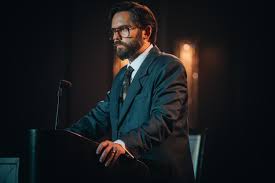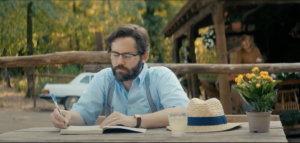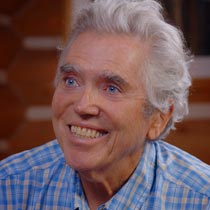Rob Ryan’s Amazing Movie Premiere June 28th on How He Saved the Internet
The Hollywood movie premiere of the Rob Ryan story is a cinematic tribute to innovation. This remarkable film documents the real-life journey of this visionary from crisis to triumph and how he saved the internet! On June 28th at 9:30 PM in the iconic TCL Chinese Theatre. For tickets, click here.
Rob Ryan, Founder of Ascend Communications discusses the documentary movie on his business success and monumental global impact on Alan Olsen‘s American Dreams Show. The transcript can be found at the end of this article.
Introduction to the Rob Ryan Story
Imagine a world where the internet, the backbone of modern communication and commerce, had collapsed in its infancy. No social media, no e-commerce, no streaming services—just a tangled web of failed connections and missed opportunities. This dystopian scenario was almost a reality in the late 1980s and early 1990s when the burgeoning internet teetered on the brink of disaster. Companies struggled to keep up with demand, many facing bankruptcy or embroiled in lawsuits, threatening to plunge the world into digital darkness.
But amidst this chaos, one man’s vision and innovation saved the day. Enter Mr. Ryan, whose company, Ascend Communications, created the hardware that stabilized and revitalized the internet’s infrastructure. His groundbreaking work not only averted an internet apocalypse but also laid the foundation for the digital age we enjoy today.
This incredible journey, filled with dramatic twists and emotional highs and lows, has been captured in the new movie “Rob Ryan: The Man Who Saved the Internet with a Sunflower.” In an exclusive podcast episode, Alan Olsen sits down with Mr. Ryan to delve into the inspiration behind the film, its unique storytelling approach, and the pivotal moments that shaped the internet’s future.

The Genesis of the Film
Mr. Ryan shares the inspiration and backstory of the movie, highlighting its departure from traditional documentary styles. Instead, the film presents a compelling narrative through the eyes of his wife, Terry Ryan. This perspective offers an intimate look at their personal and professional journey from 1989 to 1999—a critical decade when the internet was on the brink of collapse. At that time, numerous internet service providers faced bankruptcy, lawsuits, and operational failures due to an unsustainable business model.
The film chronicles this tumultuous period, focusing on how Ryan’s company, Ascend Communications, developed the crucial hardware that formed the backbone of the modern internet. This innovation not only stabilized the internet’s infrastructure but also ensured its survival and growth. Through a rich, dramatic portrayal, the movie captures the emotional and professional highs and lows of building a revolutionary company in Silicon Valley, ultimately highlighting the pivotal role Ryan played in saving the internet.

The Struggles and Triumphs
The movie chronicles the era when the internet was in jeopardy, with many companies unable to meet the soaring demand for services without incurring losses. This unsustainable business model led to widespread lawsuits and operational failures. Ryan’s company, Ascend Communications, emerged as a savior by creating the hardware that underpinned the modern internet infrastructure, addressing the dire need for efficient service delivery.

A Unique Storytelling Approach
One distinctive feature of the movie is its perspective. Told through the eyes of Mr. Ryan’s wife, it provides an intimate view of their journey, highlighting the personal sacrifices and emotional rollercoaster that accompanied their professional endeavors. The Ryans emphasizes the authenticity of the film, noting that even he and his wife experience strong emotional reactions when watching it, as it accurately captures the essence of their struggles and victories.
The Premiere and Film Festival Journey
The film is set to premiere at the iconic Chinese Theatre in Hollywood on June 28th at 9:30 PM. This venue, known for hosting the Oscars, adds a layer of prestige to the event. The Ryans expressed excitement about the premiere, sharing that ticket sales will start in early June through the theatre’s official website.
The journey to the premiere has been marked by significant recognition in various film festivals. The film has garnered acceptance and accolades in festivals in Manhattan, New York City, and Houston, where it won a gold medal. These successes are crucial as they pave the way for potential distribution on major streaming platforms like Netflix and Prime.
Conclusion
“Rob Ryan: The Man Who Saved the Internet with a Sunflower” is not just a film; it is a tribute to the perseverance, innovation, and entrepreneurial spirit that drove the creation of the modern internet. Through its unique storytelling and heartfelt portrayal of personal and professional challenges, it aims to inspire audiences and shed light on a pivotal chapter in technological history. As the premiere approaches, anticipation builds for what promises to be a powerful and enlightening cinematic experience.
Interview Transcript:
(Transcript generated by software and may contain errors.)
Alan Olsen
Rob, you have a movie coming out, The Man That Saved the Internet With A Sunflower. And I’d like to spend time just talking about the inspiration with the movies about, you know, little, little bit of background and what led you to do the movie,
Rob Ryan
I’d be happy to. So let me just give some, some data on the movie. So the movie is not a talking head documentary type movie, it’s a full length drama, with all the ups and downs associated with building the company in 1989, through 1999, that, in fact, saves the internet, it was a sending communications, and it built the hardware that was the basis for the entire worldwide infrastructure of the internet. At the time, the Internet was in trouble, about a third of them were in bankruptcy, another third were being sued.
And the other third were floundering, it was a mess is very, very close to blackout. And the reason it was a mess is that basically, they had an enormous number of people that wanted their service, but when they put them on, it costs them more to put them on the internet, then they could make this is not a good algorithm for business. And so in order to eviscerate that problem, they what they did is sell 100 seats where they only had one seat to give you, which then created another problem, which is you couldn’t get in, so they got sued.
So we came along, we solved all of that problem. The story is of a husband and a wife in the story is told through the lens of the wife, which is I think a first to for a full length, film, all of the travails of going up and down and creating in Silicon Valley, this startup and pushing through, and it had many ups and downs.
And to tell you how these ups and downs affect me, if I see the movie, now, I get angry at points, and I get sad at points, my wife gets totally pissed off at points, cuz the filmmaker absolutely can’t capture it, you know, the emotions and the drama extremely, extremely well.
And the film is going to be shown in a film festival in Hollywood at the Chinese Theatre on June 28. At 9:30pm. I think the ticket sales don’t kick off for a while there’ll be a link that people can online that they can, you know, address and order tickets. And we hope to see everybody down there.
Alan Olsen
That sounds like to find out getting tickets, human if we put a link or an invitation in the, in the in the video here how people can go ahead and get tickets to this event.
Rob Ryan
And so one of the things that I didn’t mention, Ellen, is that how did it begin? So it really had two origins of how it began, well, maybe three, first of all, the filmmaker, and I had done a film for children called License to Dream, which, which was showing them how they could build a startup using the sunflower code. That’s the sunflower that’s referenced in the title of the film, the man who saved the internet with a sunflower. While we don’t do a tutorial in the film. It is very much present in the film.
And after watching the film, we’ll have websites and what have you where people can learn more about the simpler code. So that gave us the impetus of we want to actually spread this entrepreneurship and this way of thinking, and what better way to do that than a film. I was going to do a simple book, but as many of you know, a lot a lot of people don’t read books anymore. But they do attend films and streaming. So hence the film the other. The other thing was to the happenings that happen that kind of drove it one.
Terry and I got invited my wife and I got invited to Parkland School in a y which is a private school to give a little talk the talk every Two weeks by a businessman. So they normally have, you know, the local pizza sales guy or whatever in there. But this time, they got us. And it was the auditorium was filled with fifth graders all the way through seniors, several 100.
When there, and I basically, you know, grabbed the attention of the crowd by, you know, asking them if a Zuck burger was on the menu and whether Google was some sort of french fry, when they all started laughing and put their phone down to see the idiot that said that. And I said to them, you know, that phone and everything you’re playing with over social media, never would be there. If we hadn’t done our job at a sand and build the modern internet. At that point, I had their attention. Here’s what happened.
We gave a half an hour talk was standing ovation at several times. At the end, people were lining up for autographs. And I thought, wow, there’s a pretty large interest in hearing about how the Internet came to be. So that was one, the second event was with you. American dream. We gave a simple talk of called The Untold Story of the internet, it was on American dream.
And normally, your talks garnered 1000s of listeners, this talk garnered up over a million this, as I recall, again, an amazing representation of a hunger to hear those two things. And the sunflower, the need to spread the sunflower, were the driving impetus for the for that film. People ask when is it going to be on Netflix or prime or one of the streaming services? So the answer is the following. There’s a process by which you go through when you create a film, to get it on those streaming services. The film festivals are their filter.
So Netflix, Paramount, you know, prime all of you, them use the film festivals to call out all of the applicants. And you know, the winners or the sometimes just the people that plays by the ones that say then look at, you know, to get on the streaming service. So we’re in the midst of that film festivals. We’re doing extremely well. We’ve been accepted in Manhattan, which is obviously New York City.
Then we were accepted in New York City, there are two different film festivals Chicago Film Festival, all of those we were unable to accept. Because we had promised to do the world premiere as the Hollywood running with films as the title of that film festival. We also accepted in Euston which did not require us to come down and have a world premiere, they actually judge films. And they’re the second oldest film festival in the world, behind Keynes in France, and we won gold medal. So we won the gold.
And the winners of the gold were people like Lucas Spielberg, and the list is very prominent. You know, listen, we were we were very pleased with that. So that’s a little a little bit more information. So we’re in the process. Good showings in the film festival garnered the attention of distributors and, and Netflix and primes. Because if anybody has to direct lifeline directly into the head of Netflix or the former founder read, you know, I’m totally willing to make a phone call.
Alan Olsen
Well, I can tell you the sunflower model works and the world needs to see the mechanics behind the sunflower how this thing works. It is an amazing, amazing lab. We appreciate you bringing this out to the world and tell the story to the internet being born and then yeah, how the sunflower model impacted. Rock where were the film, where will the film be premiering?
Rob Ryan
The film will be premiering in the center of Hollywood at a theater complex called the Chinese Theater complex with the Oscars are performed every year, and it will be on June 28. At 9:30pm is our showing which theater in that complex. I don’t know that they’ve assigned it yet. The tickets will be on sale through a link In probably sometime in early June right now if you went to their link you would just see other movies that they’re currently playing so it’s early now.
So I would go to that their link and sometime in mid June and you’ll see us. I think that they have a lot of application we in our category, they selected 16 films and are showing is the last the last one at 930 on Friday evening in the Chinese Theatre in Hollywood which I haven’t been to Terry and I are going to you know, go down they’re probably going to not dress and tuxedo or anything. I’m going to just go in my cowboy kind of thing of a Terry just said that I have to dress up a little more than that. She’ll probably lay out the clothes that I need.
Alan Olsen
Well, we look forward to this premiere. We’ll definitely be there with you
To view more content like this, click here to subscribe to our YouTube channel
And click here to receive our FREE Newsletter.


Transcript generated by software and may contain errors.
Rob Ryan founded Ascend Communications in 1989. Rob served as President, CEO, and Chairman of Ascend, taking it public Friday the thirteenth of May, 1994, at $13.00 per share. In 1995 Rob and Terry started Entrepreneur America.
Rob gained his first experience in Local Area Networking as a Systems Analyst at Lawrence Livermore Lab in the mid-seventies working on the first non-military extension of Arpanet, the precursor to the Internet.
He became a principle architect of Dec Net with Digital Equipment Corp. in the late seventies, then authored the Intel portion of the Ethernet Specification which set the local area network standard in the early eighties. He joined Ungermann-Bass as Director of Engineering in 1982, leaving in 1983 to found his first company, SoftCom, which was sold to Hayes Microcomputer in 1984. In 1989, Rob left Hayes with three engineers to found Ascend.
Under Rob’s leadership, Ascend became the leading manufacturer of Point of Presence boxes (POPS) for Internet providers. Rob describes Ascend’s business as selling the picks and shovels for the Internet gold rush. Ascend has grown from zero sales in 1989 to over 500 million sales in 1996. In 1995, the last year Rob served as CEO of Ascend, the stock was acknowledged as the best performer of the year on all of Wall Street returning a whopping 721% (Business Week, December 25, 1995; pp. 126-127). If you had invested in Ascend two months after the IPO, you would have gained 3,223% one and three quarters years later (Investors Business Daily August 30, 1996; p. A3). At the end of 1995, Rob won the Ernst and Young Entrepreneur of the Year award for Northern California (including Silicon Valley). Rob was selected as the Cornell University Entrepreneur of the Year for 2002.
Rob Ryan’s current focus is his Entrepreneur America facility in Montana. In this Rocky Mountain setting Rob mentors promising entrepreneurs, assisting with focusing product ideas, writing business plans, sharpening presentations, and raising venture capital.
Note: This transcript was produced electronically, as such, it can not be relied upon to reflect the exact wording used; further, it may have been edited for concision and clarity.
Alan is managing partner at Greenstein, Rogoff, Olsen & Co., LLP, (GROCO) and is a respected leader in his field. He is also the radio show host to American Dreams. Alan’s CPA firm resides in the San Francisco Bay Area and serves some of the most influential Venture Capitalist in the world. GROCO’s affluent CPA core competency is advising High Net Worth individual clients in tax and financial strategies. Alan is a current member of the Stanford Institute for Economic Policy Research (S.I.E.P.R.) SIEPR’s goal is to improve long-term economic policy. Alan has more than 25 years of experience in public accounting and develops innovative financial strategies for business enterprises. Alan also serves on President Kim Clark’s BYU-Idaho Advancement council. (President Clark lead the Harvard Business School programs for 30 years prior to joining BYU-idaho. As a specialist in income tax, Alan frequently lectures and writes articles about tax issues for professional organizations and community groups. He also teaches accounting as a member of the adjunct faculty at Ohlone College.


